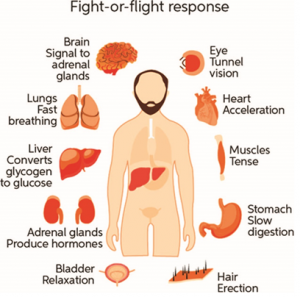
In today’s fast-paced world, stress has become a common experience for many individuals. For those with diabetes, managing stress is crucial not only for overall well-being but also for effective blood sugar control. This article explores how stress impacts diabetes and offers practical strategies for reducing stress levels to maintain better health.
The Connection Between Stress and Blood Sugar
When you experience stress, your body responds by releasing hormones such as cortisol and adrenaline. These hormones are part of the body’s “fight or flight” response, which can lead to a series of physiological changes, including:
- Increased Blood Sugar Levels: Stress hormones signal the liver to release glucose into the bloodstream, raising blood sugar levels. This can be particularly concerning for individuals with diabetes, who may already struggle to manage their blood glucose levels.
- Insulin Resistance: Chronic stress may contribute to insulin resistance, making it harder for cells to absorb glucose from the bloodstream. This can lead to higher blood sugar levels over time.
- Unhealthy Coping Mechanisms: Stress often leads to unhealthy lifestyle choices, such as overeating, consuming high-sugar or high-fat foods, and neglecting physical activity, all of which can further complicate blood sugar management.
Recognizing the Signs of Stress
Understanding the signs of stress is the first step in managing it effectively. Common symptoms include:
- Feelings of anxiety or overwhelm
- Difficulty concentrating
- Changes in sleep patterns (insomnia or oversleeping)
- Increased irritability or mood swings
- Physical symptoms such as headaches or digestive issues
Strategies to Manage Stress for Better Blood Sugar Control
1. Practice Mindfulness and Relaxation Techniques
Mindfulness practices can significantly reduce stress and improve mental clarity. Consider incorporating the following techniques into your daily routine:
- Meditation: Spending just a few minutes each day in meditation can help calm the mind and reduce stress levels. Apps like Headspace or Calm can guide you through meditation sessions.
- Deep Breathing Exercises: Simple deep breathing techniques can quickly lower stress levels. Try inhaling deeply for a count of four, holding for four, and exhaling for a count of six.
2. Engage in Regular Physical Activity
Exercise is a natural stress reliever that also aids in blood sugar control. Aim for at least 150 minutes of moderate-intensity aerobic activity each week, such as:
- Walking or jogging
- Cycling
- Swimming
- Yoga or Pilates
Physical activity not only helps reduce stress but also promotes the release of endorphins, which enhance mood.
3. Establish a Healthy Routine
Creating a structured daily routine can provide a sense of stability and predictability, which can be comforting during stressful times. Key components of a healthy routine include:
- Regular Meals: Eating balanced meals at consistent times can help regulate blood sugar levels.
- Sleep Hygiene: Prioritize sleep by maintaining a regular sleep schedule and creating a relaxing bedtime routine to improve sleep quality.
4. Connect with Others
Social support plays a critical role in stress management. Engaging with friends, family, or support groups can provide emotional support and reduce feelings of isolation. Consider:
- Joining a Diabetes Support Group: Connecting with others who understand your challenges can provide valuable insights and encouragement.
- Talking to a Therapist or Counselor: Professional support can help you develop coping strategies and address underlying issues contributing to stress.
5. Limit Stress Triggers
Identify specific stressors in your life and develop strategies to manage or mitigate them. For example:
- Set Boundaries: Learn to say no to additional commitments that may overwhelm you.
- Time Management: Prioritize tasks and break them into manageable steps to avoid feeling overwhelmed.
6. Explore Relaxation Activities
Engaging in hobbies or activities you enjoy can be a great way to relieve stress. Consider:
- Creative Outlets: Try painting, drawing, or crafting to express yourself and unwind.
- Nature Walks: Spend time outdoors to enjoy fresh air and the calming effects of nature.
Conclusion
Managing stress is an essential aspect of diabetes care that can significantly impact blood sugar control and overall health. By recognizing the connection between stress and diabetes and implementing effective stress-reduction strategies, individuals with diabetes can enhance their quality of life and improve their ability to manage their condition. Prioritize self-care, seek support, and develop healthy coping mechanisms to navigate life’s challenges more effectively.

